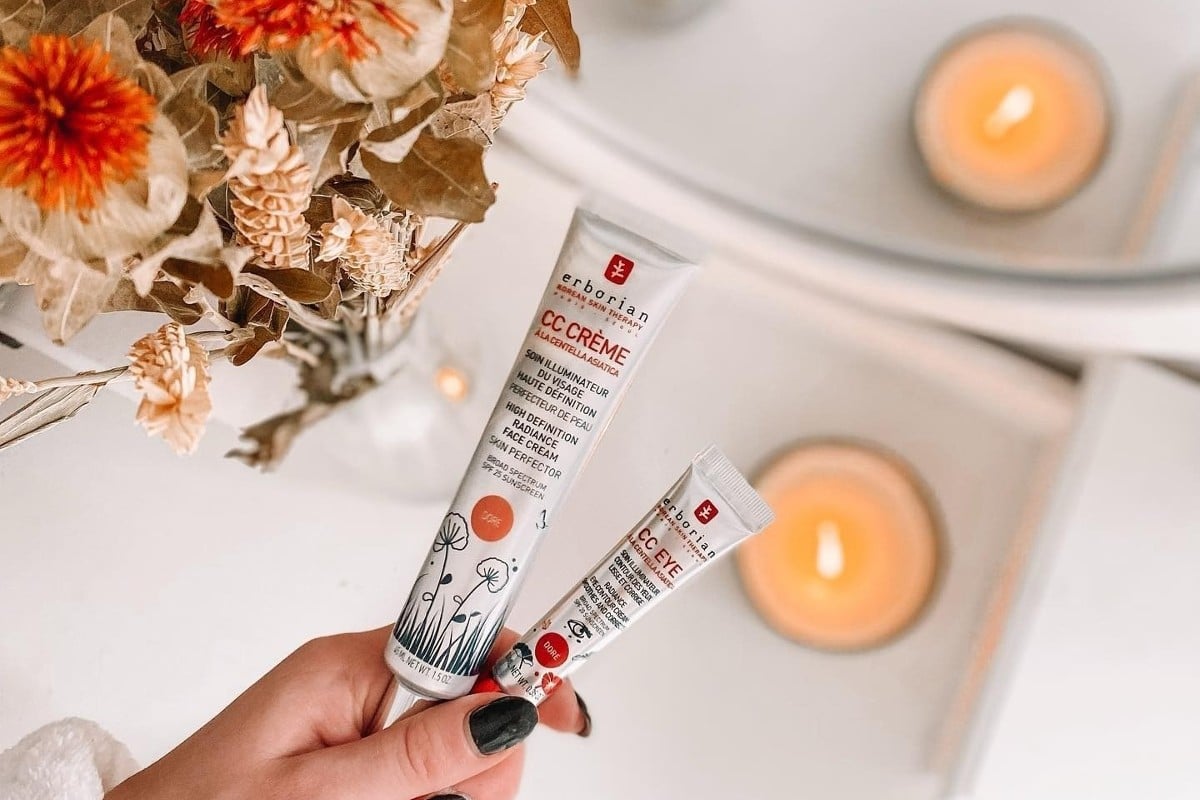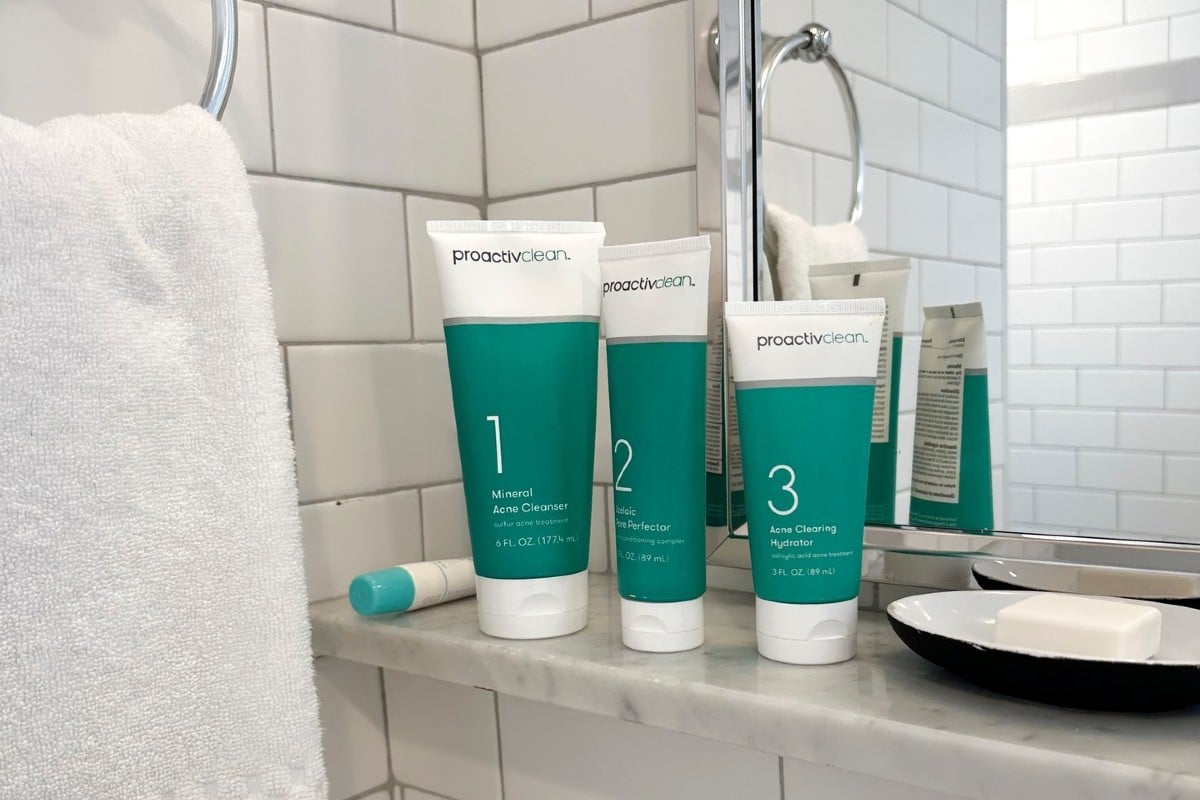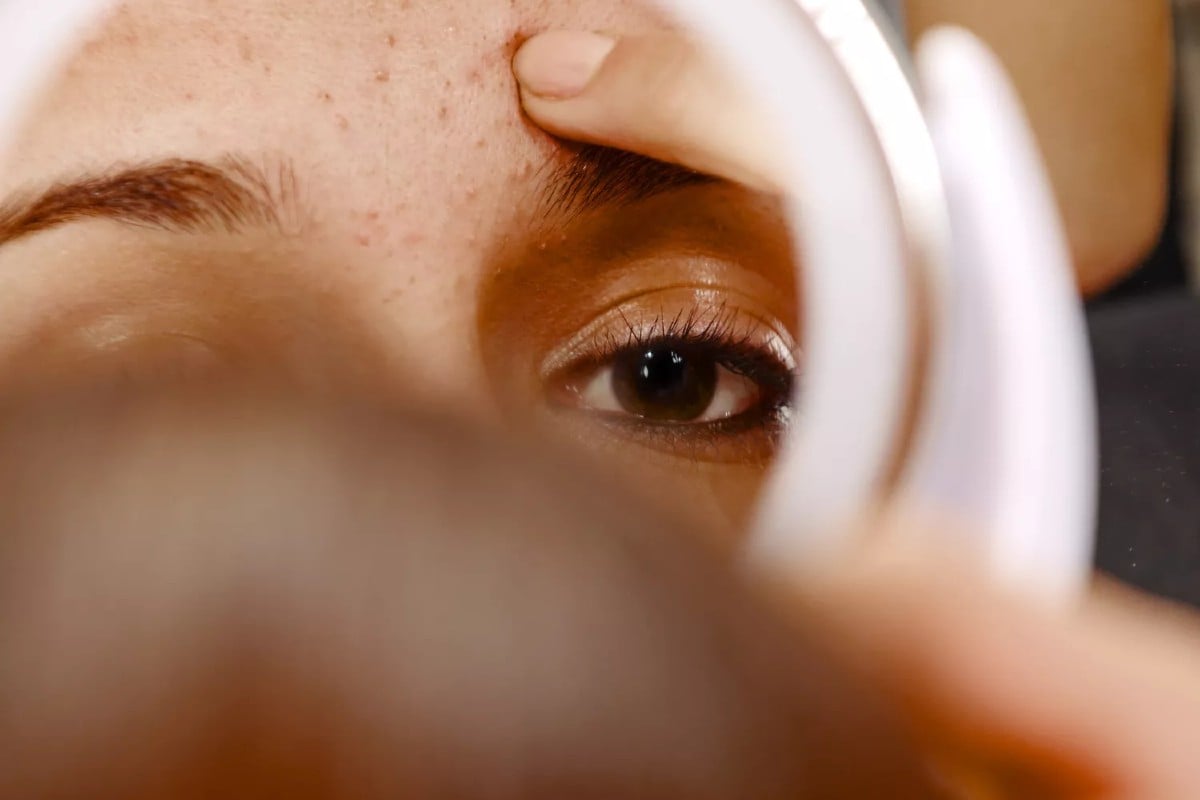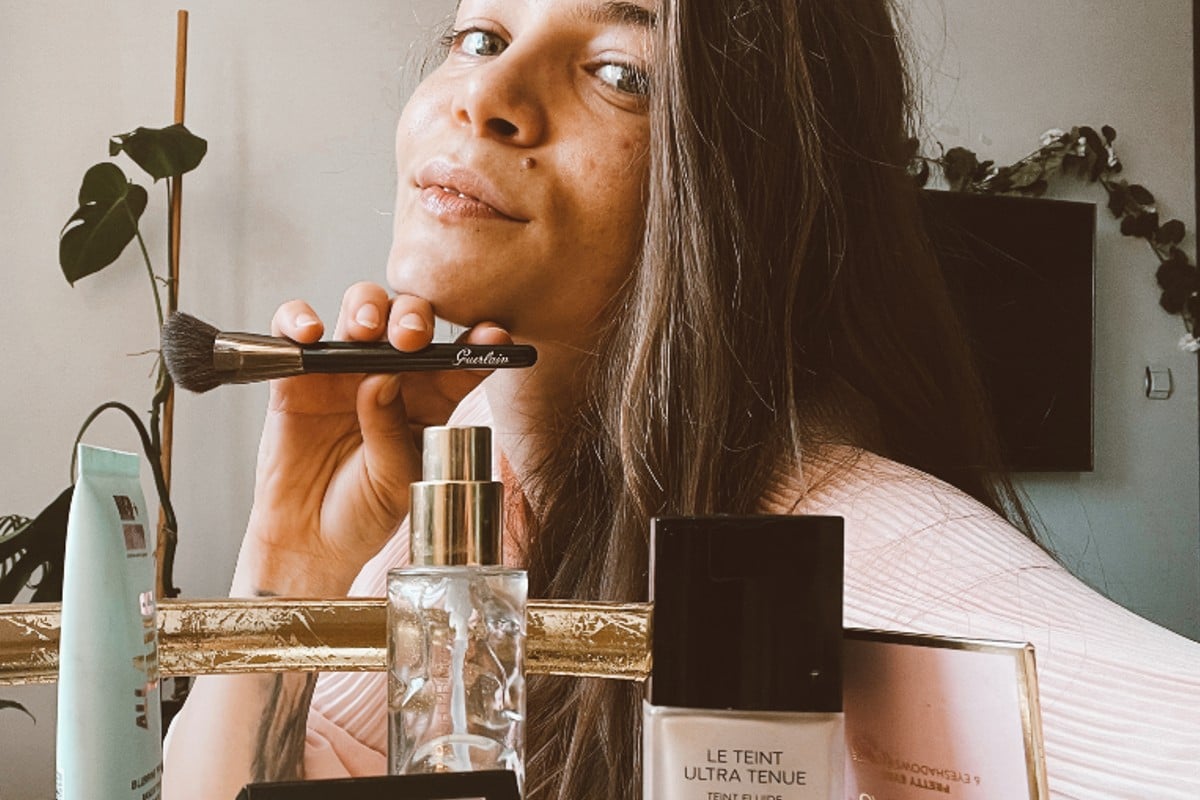If you feel like you’ve hit a dead end in your quest to clear your pimples, you may be missing something. Case in point: antioxidants. According to a study published by the Journal of Clinical and Aesthetic Dermatology, one of the most overlooked factors that can trigger acne is the damage caused by free radicals.[1] And what can fight these unstable molecules better than much-needed antioxidants?
Recent studies have even found a link between acne and low levels of antioxidants in the body. So making sure you have enough antioxidants in your diet and skincare routine can actually help manage your acne and achieve clear skin. These powerful compounds not only offer protection but also deliver more benefits, such as combating bacteria, reducing inflammation, and providing hydration.
Stick around to learn more about the importance of antioxidants in treating acne and which ones you really need.
The role of antioxidants in treating acne
Acne is caused by multiple factors. Two of them are inflammation and oxidative stress, which are both linked to free radicals. Antioxidants go straight to the source of acne by putting a stop to free radicals.[2]
For a quick refresher, free radicals are unstable molecules (released by UV damage and pollution) that attach to healthy molecules in an attempt to stabilize themselves. An overload of free radicals triggers oxidative stress and causes the skin to become inflamed and damaged. This inflammatory response often leads to wrinkles, hyperpigmentation, and even breakouts. Antioxidants are free radical scavengers that we need to preserve our skin health. They donate an electron to those harmful molecules, neutralizing them and protecting the cells against the inflammation that triggers acne.
However, research shows that the antioxidant defense system in people suffering from acne is often overwhelmed.[3] It was found that acne-prone skin tends to have lower levels of antioxidants, such as vitamins A and E, compared to clear skin. The severity of acne has also been correlated with reduced blood antioxidant levels. The gap appears even wider for women, with a deficiency of vitamins A, C, and E, and beta-carotene.[4]
Antioxidants block various pathways that contribute to acne
Antioxidants block another major pathway that contributes to acne breakouts: lipid peroxidation. By targeting this process, which is basically the oxidation of fats and oils in our skin, antioxidants can potentially interrupt the acne cascade. Let me put this into perspective.
When sebum gets oxidized, it releases irritating free radicals into the surrounding tissues. The oxidized sebum is also more sticky and has an increased tendency to mix with dead cells, bacteria, and other impurities, forming plugs that block the pores. Antioxidants prevent the damage caused by this process by neutralizing harmful free radicals and protecting our skin’s fats and oils from oxidation.
How antioxidants improve acne
Antioxidants such as vitamin A, vitamin C, vitamin E, green tea, zinc, niacinamide, and beta-carotene have been proven effective in improving acne. They work through various mechanisms, including:
- Reducing oxidative stress
- Inhibiting lipid peroxidation
- Soothing inflammation
- Regulating sebum production
- Promoting skin healing
- Inhibiting the growth of bacteria
The best antioxidants for acne
Vitamin A
Vitamin A is an essential antioxidant that’s usually missing in acne sufferers. It has a few mechanisms that work great to improve acne.
For starters, vitamin A reduces the amount of sebum the skin produces, meaning fewer chances to clog your pores. It also has anti-inflammatory properties that help alleviate redness and swelling caused by acne. Moreover, vitamin A is a key player in supporting cell turnover, which prevents the buildup of dead skin that’s often to blame for breakouts. It can even help reduce the appearance of acne scars by supporting collagen synthesis and tissue regeneration.
You can ensure your vitamin A intake by eating foods like dairy products, eggs, fish, and orange-colored fruits and vegetables like carrots, sweet potatoes, and apricots. Adding retinoids to your routine is another way to do it. Retinoids are a class of compounds derived from vitamin A often used for regulating sebum production and reducing acne lesions.
Vitamin C
Vitamin C is an inflammation-fighting champ, helping calm the skin and reducing the redness that often accompanies acne. It stimulates the production of collagen—protein needed for skin repair—which in turn encourages the healing of pimples and scars. And the post-acne marks you were left with? Vitamin C fades them with its potent skin-brightening properties. Furthermore, vitamin C boosts your skin’s natural defense system. It strengthens your protective barrier, making it more resilient against environmental pollutants, bacteria, and irritants. This means fewer triggers for acne and a healthier complexion.
Good sources of vitamin C include citrus fruits like oranges, strawberries, kiwis and vegetables like bell peppers and broccoli. Applying a vitamin C-rich serum can provide more targeted and immediate results in terms of providing antioxidant protection and soothing inflammation.
Vitamin E
Vitamin E is another essential antioxidant needed by acne-prone skin that’s ironically found in low levels in people with adult acne. It has anti-inflammatory and healing properties that can help treat nodules, papules, pustules, and scars and provide protection against external threats.
In terms of sources, vitamin E can be obtained through a healthy diet and topical use. Good dietary sources include nuts (such as almonds and sunflower seeds), vegetable oils (such as wheat germ oil and sunflower oil), and green leafy vegetables (like spinach and broccoli). Regarding topical application, be aware that vitamin E has a low comedogenic score, so applying too much of it can potentially clog your pores.
Green tea
Green tea is packed with compounds called polyphenols, which give it a wide range of benefits like antioxidants, antibacterial, and anti-inflammatory. When it comes to acne-prone skin that tends to react easily, topical green tea is a real superhero. It can calm inflammation and reduce redness, providing much-needed relief.[5] Another way green tea reduces acne is by regulating excess sebum production.[6] We recommend these green tea skincare products.
Niacinamide
Niacinamide, also known as vitamin B3, packs a punch against pimples for several reasons. Firstly, it defends the skin against oxidative stress and showcases strong antimicrobial and anti-inflammatory properties, protecting against bacteria and reducing inflammation. A 2008 study shows that a 4% niacinamide product is effective and safe in alleviating mild to moderate acne.[7] Moreover, niacinamide increases essential proteins, keratin, and ceramides in the skin, which contribute to the proper function of the protective barrier. A more robust barrier means fewer chances for breakouts to occur. Last but not least, niacinamide balances sebum production, minimizing the chances of clogged pores.[8]
Zinc
Zinc, a mineral known for its powerful antioxidant and anti-inflammatory properties, can play a significant role in reducing acne. Its ability to support collagen production and enhance the skin’s repair function aids in faster healing and minimizes scarring.[9] Zinc is also a sebum regulator, so it effectively manages a major culprit behind blackheads: clogged pores.[10] Good sources of zinc include oysters, beef, and pumpkin seeds.
The takeaway
Antioxidants play a valuable role in managing acne by reducing inflammation, promoting skin repair, and combating oxidative stress. They can be especially effective if you’re dealing with adult acne, as studies found a link between adults with low levels of antioxidants and the severity of acne. However, to maximize their effectiveness, it’s best to combine antioxidants with targeted treatments that address your specific type of acne. That’s why you should consult a dermatologist to receive a personalized approach tailored to your needs.
Sources
Women’s Concepts uses reliable sources, including dermatologists’ insights, clinical trials, and scientific journals, to find accurate information and support all the facts shared in our articles. All statements and claims have clear and legit references. Read our editorial policy to learn more about our sources of information, our process of researching and fact-checking the content, and how our team strives to keep all articles updated, completed, and trustworthy.
- Mills OH, Criscito MC, Schlesinger TE, Verdicchio R, Szoke E. Addressing Free Radical Oxidation in Acne Vulgaris. J Clin Aesthet Dermatol. 2016 Jan.
- Al-Shobaili HA. Oxidants and antioxidants status in acne vulgaris patients with varying severity. Ann Clin Lab Sci. 2014 Spring.
- Bowe WP, Patel N, Logan AC. Acne vulgaris: the role of oxidative stress and the potential therapeutic value of local and systemic antioxidants. J Drugs Dermatol. 2012 Jun;11(6):742-6.
- Bowe WP, Logan AC. Clinical implications of lipid peroxidation in acne vulgaris: old wine in new bottles. Lipids Health Dis. 2010 Dec 9;9:141. doi: 10.1186/1476-511X-9-141. PMID: 21143923.
- Kim S, Park TH, Kim WI, Park S, Kim JH, Cho MK. The effects of green tea on acne vulgaris: A systematic review and meta-analysis of randomized clinical trials. Phytother Res. 2021 Jan.
- Saric S, Notay M, Sivamani RK. Green Tea and Other Tea Polyphenols: Effects on Sebum Production and Acne Vulgaris. Antioxidants (Basel). 2016 Dec 29;6(1):2. doi: 10.3390/antiox6010002. PMID: 28036057; PMCID: PMC5384166.
- Yeşim Kaymak,1* MD, Meltem Önder, MD, Journal of the Turkish Academy of Dermatology, An Investigation of Efficacy of Topical Niacinamide for the Treatment of Mild and Moderate Acne Vulgaris.
- Draelos ZD, Matsubara A, Smiles K. The effect of 2% niacinamide on facial sebum production. J Cosmet Laser Ther. 2006 Jun.
- Lin PH, Sermersheim M, Li H, Lee PHU, Steinberg SM, Ma J. Zinc in Wound Healing Modulation. Nutrients. 2017 Dec 24.
- Brandt S. The clinical effects of Zinc as a topical or oral agent on the clinical response and pathophysiologic mechanisms of acne: a systematic review of the literature. J Drugs Dermatol. 2013 May.





